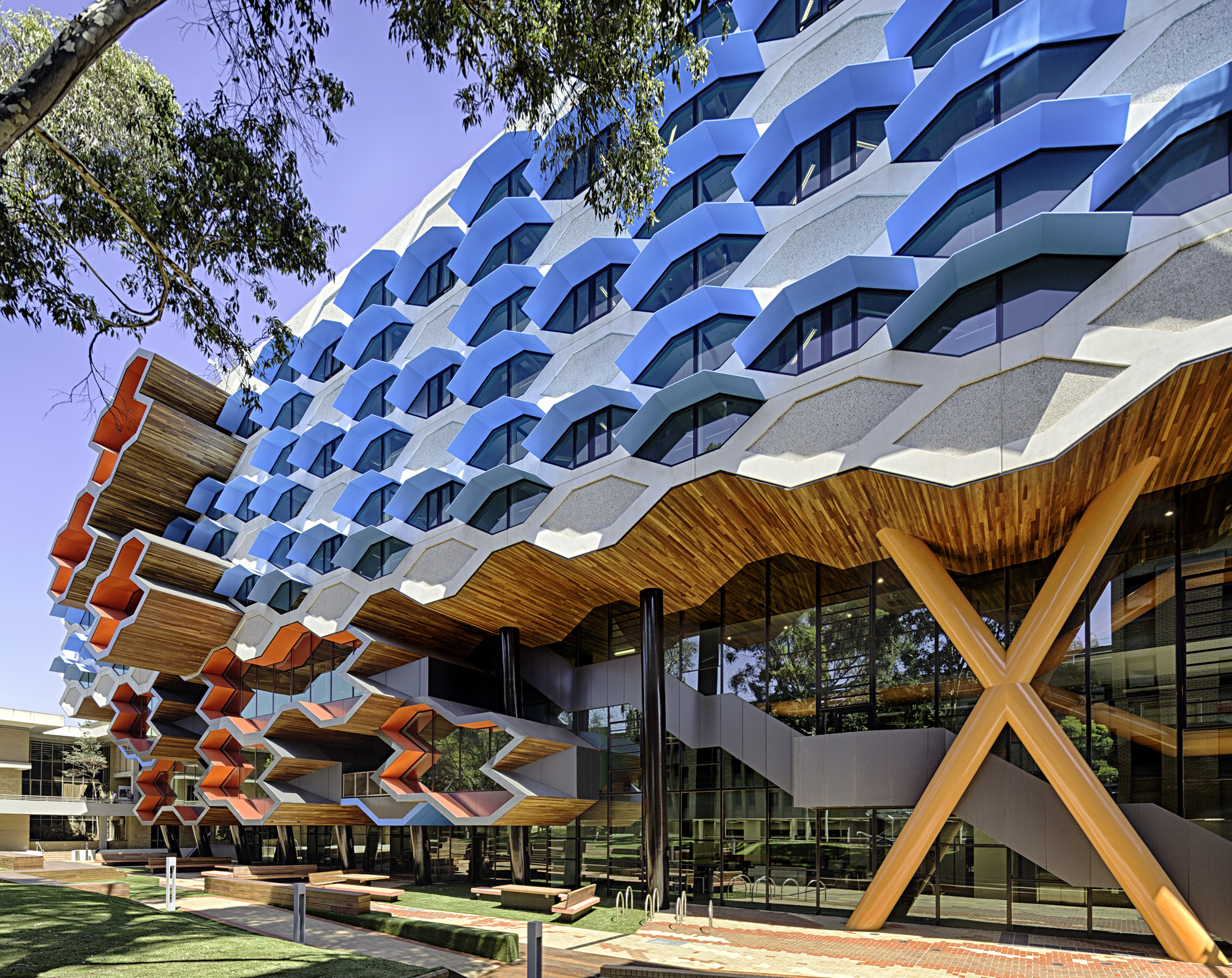Spotlight on La Trobe Institute for Molecular Science
11 November 2016
Launched in 2009, the La Trobe Institute for Molecular Science (LIMS) brings together La Trobe University’s leading scientists to create new levels of collaboration, and a multi-disciplinary approach to drive innovation and produce translatable research outcomes.
State-of-the-art research hub
The $100 million LIMS facility is the interface between La Trobe and local and global biotechnology companies, and a key player in the development of an ambitious Northern Bioscience Precinct in Melbourne’s fast-growing northern region.

The LIMS complex (above) has 56 research and support laboratories, advanced research equipment, a 200-seat auditorium, and over 3,000 square metres of teaching facilities. Around four hundred La Trobe academics, research fellows, postgraduate students and support staff are based at the Institute. LIMS also has an important regional node; many of its scientists work at La Trobe’s Bendigo campus.
Research strength
The Institute’s vision is achieved through excellence in six areas of research strength: cancer, infection and immunity, neurobiology, molecular design, molecular imaging and molecular sensing. The innovative and broad-ranging scientific portfolio spans biochemistry, chemistry, genetics, physics and pharmacy.
“Our Institute contains a range of disciplines from the basic physical sciences (chemistry and physics), to life sciences (biochemistry and genetics), to the commercial interface of pharmacy and applied science,” said Professor Robert Pike, Director of LIMS.
LIMS is also a training centre, providing students and early career researchers with access to the latest equipment and exposure to high impact research projects. It develops its own researchers, supports early career researchers, and is recruiting leading scientists in its areas of strength.
Industry engagement
Greater industry engagement is a cornerstone of the Institute’s strategic agenda. La Trobe has outstanding links with the Australian Synchrotron (several of the Institute’s physicists design and build synchrotron components) and teams within LIMS have longstanding industry collaborations.
LIMS has two embedded companies: Hexima Ltd, who develop plant-derived proteins and peptides for application as human therapeutics and the genetic modification of crops; and AdAlta Ltd, who are developing the next generation antibody platform, the i-body, to deliver high affinity and specific biologics against a variety of therapeutic and diagnostic targets.
Game changing research partnerships also enhance the Institute’s efforts to raise its research capabilities to new levels of national and international significance. An important collaboration with the Olivia Newton-John Cancer Research Institute facilitates the sharing of knowledge, skills, research, training and facilities.
'LIMS has an innovative and creative atmosphere,' said Professor Pike. 'Our researchers have the best equipment and support to allow them to make discoveries of real world importance and inspire the next generation of Australian scientists.'
To learn more about LIMS, visit www.latrobe.edu.au/lims

